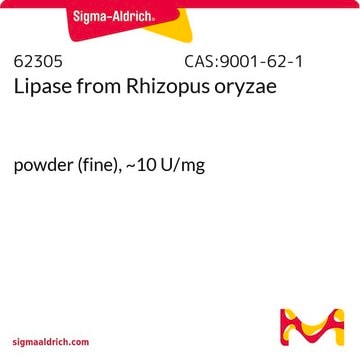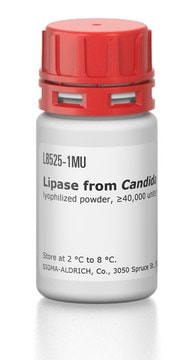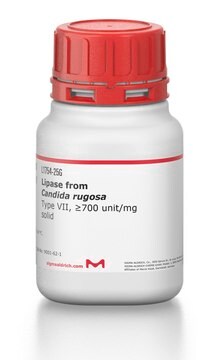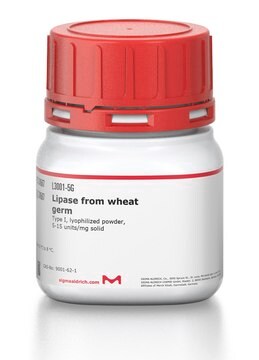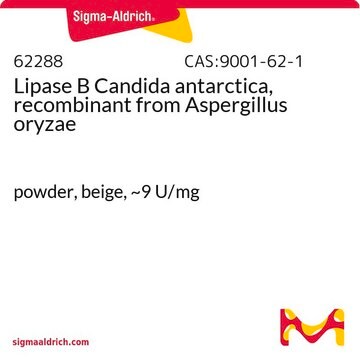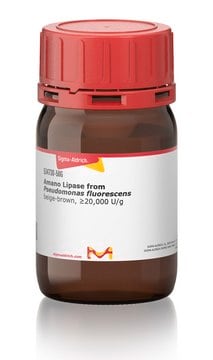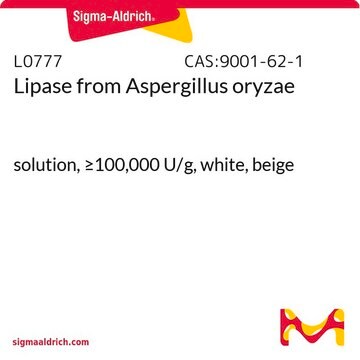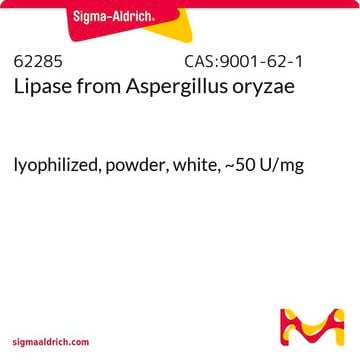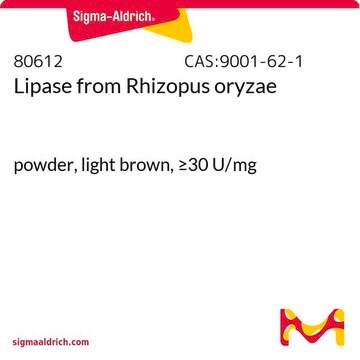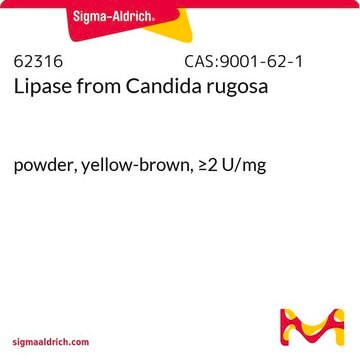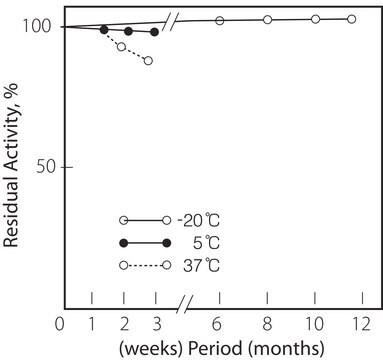62301
Lipase from Aspergillus niger
powder (fine), ~200 U/g
Synonym(s):
Lipase AP6
About This Item
Recommended Products
biological source
Aspergillus niger
Quality Level
form
powder (fine)
specific activity
~200 U/g
mol wt
Mr ~45000
storage temp.
2-8°C
InChI
1S/C11H9N3O2.Na/c15-8-4-5-9(10(16)7-8)13-14-11-3-1-2-6-12-11;/h1-7,16H,(H,12,14);/q;+1/b13-9-;
InChI key
QWZUIMCIEOCSJF-CHHCPSLASA-N
Looking for similar products? Visit Product Comparison Guide
Application
Biochem/physiol Actions
Unit Definition
Other Notes
Signal Word
Danger
Hazard Statements
Precautionary Statements
Hazard Classifications
Resp. Sens. 1
Storage Class Code
11 - Combustible Solids
WGK
WGK 1
Flash Point(F)
Not applicable
Flash Point(C)
Not applicable
Personal Protective Equipment
Certificates of Analysis (COA)
Search for Certificates of Analysis (COA) by entering the products Lot/Batch Number. Lot and Batch Numbers can be found on a product’s label following the words ‘Lot’ or ‘Batch’.
Already Own This Product?
Find documentation for the products that you have recently purchased in the Document Library.
Customers Also Viewed
Our team of scientists has experience in all areas of research including Life Science, Material Science, Chemical Synthesis, Chromatography, Analytical and many others.
Contact Technical Service